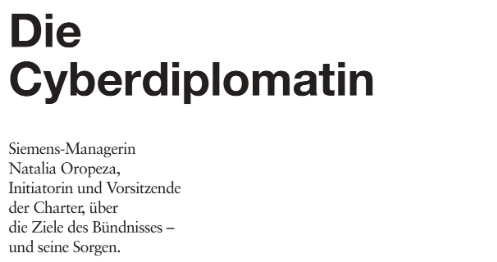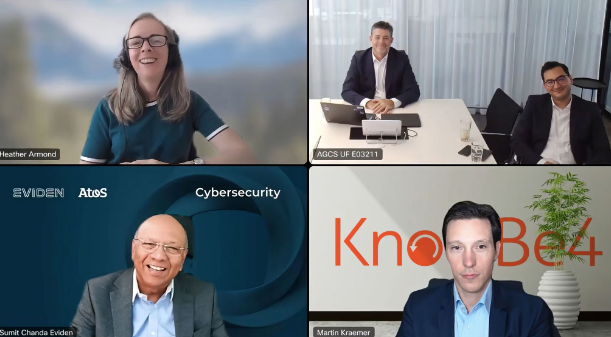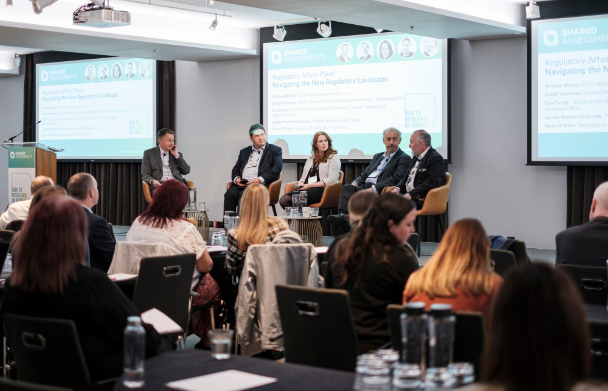New Siemens suppliers must comply with minimum binding cybersecurity requirements, which will be introduced step-by-step starting on February 15, 2019, and anchored in a separate, binding clause in all new contracts.
These requirements will apply primarily to suppliers of security-critical components such as software, processors and electronic components for certain types of control units. Existing suppliers who do not yet comply with the requirements are to implement them gradually. The goal is to better protect the digital supply chain against hacker attacks. In this regard, Siemens is following the course laid down by the Charter of Trust for cybersecurity. The requirements stipulate, for example, that suppliers must integrate special standards, processes and methods into their products and services. The reason: to prevent vulnerabilities and malicious codes at suppliers – and thus in Siemens products as well. In the future, suppliers themselves must, for example, perform security reviews, conduct tests and take corrective action on a regular basis. Siemens is making these requirements mandatory for its own activities as well.
“This step will enable us to reduce the risk of security incidents along the entire value chain in a holistic manner and offer our customers greater cybersecurity,” said Roland Busch, member of Siemens’ Managing Board and the company’s Chief Operating Officer and Chief Technology Officer. “If all our partner companies put their global weight behind these measures and implement them together with their suppliers, we can generate tremendous impact and make the digital world more secure.”
In the fall of 2018, Siemens further strengthened its internal capacities for repelling hacker attacks and restructured its cyberorganization. Operating as a worldwide network, the new unit combines what were once separate areas. As a result, Siemens is now the first major company to take a holistic approach to the topic of cybersecurity. Not only does the new Siemens organization investigate, analyze and repel hacker attacks; it also develops new cybersecurity services and teams up with the company’s business units to launch these services on the market. The goal is to react to attacks with even greater speed and flexibility. In every region and at every division, the company has also strengthened its network of cybersecurity managers, who now report to Natalia Oropeza, Siemens’ Chief Cybersecurity Officer.
Siemens has been active in the field of cybersecurity for about 30 years. Its first cybersecurity team was established back in 1986. The company currently has around 1,275 employees worldwide working exclusively on cybersecurity-related matters. Other employees at the divisions and in the regions also contribute to the company’s activities in the cybersecurity field.


You may also like

Chairwoman Natalia Oropeza in Brandeins Magazine
In an interview with Dorit Kowitz, Natalia dives deep into the pressing issues facing the cybersecurity landscape, explaining how the Charter of Trust bundles the expertise of different businesses across several regions to stay resilient in the face of evolving threats. As Natalia Oropeza says: "We all win if cybercrime doesn’t win."
Here are three key insights from her interview:
🔑 Collaboration is essential: No single organization can tackle cyber threats alone. The Charter of Trust is a prime example that businesses nowadays are more transparent when it comes to attacks and that sharing information in this field can be beneficial.
🔑 Addressing the digital skills gap: The Charter of Trust is working to address the global shortage of cybersecurity professionals by encouraging diversity and actively promoting opportunities for women to join the field.
🔑 Unified regulations: Harmonizing global cybersecurity standards will reduce vulnerabilities, helping businesses and governments combat threats more effectively.
The full interview is available here: https://lnkd.in/gRm6ZDGC


Cybersecurity Awareness Month
The complexity and urgency of this topic gathered a lot of interest, with 600+ attendees throughout the whole panel, which was composed of Jon-Paul Jones, COO at AZ Commercial, Firas Ben Hassan, GenAI expert & Manager of AllianzGPT at AZ Technology, Dr. Martin J. Krämer, External Security Awareness Advocate at KnowBe4, and Dr Sumit Chanda, Global CISO at Eviden & Chair of the Global External Engagement Working Group at the Charter of Trust.
We are pleased to see Dr. Sumit Chanda from Eviden bringing in his unique CISO insight on what these emerging technologies mean in day-to-day cybersecurity practices and bringing in the Charter of Trust perspective on this topic as well.
Thank you, Ervin Cihan and Haydn Griffiths for inviting other CoT Partners and for the great initiatives that Allianz is putting together within this year’s Security Awareness Month. And special thanks to Heather Armond for the great moderation.


UK/EU Summit - “Risk to Resilience”
💡Under the theme “Risk to Resilience” the first event of this series was held in London and brought together professionals from different industries and regions. Detlef participated in the panel about the complex regulatory landscape and emphasized that new legislation like the EU AI Act, DORA and Hashtag#NIS2 continue to push the standard of care on cybersecurity and other risks.
Thanks to Shared Assessments for organizing such an amazing event and inviting the Charter of Trust to participate in this high-class panel alongside Andrew Moyad, CEO at Shared Assessments.



